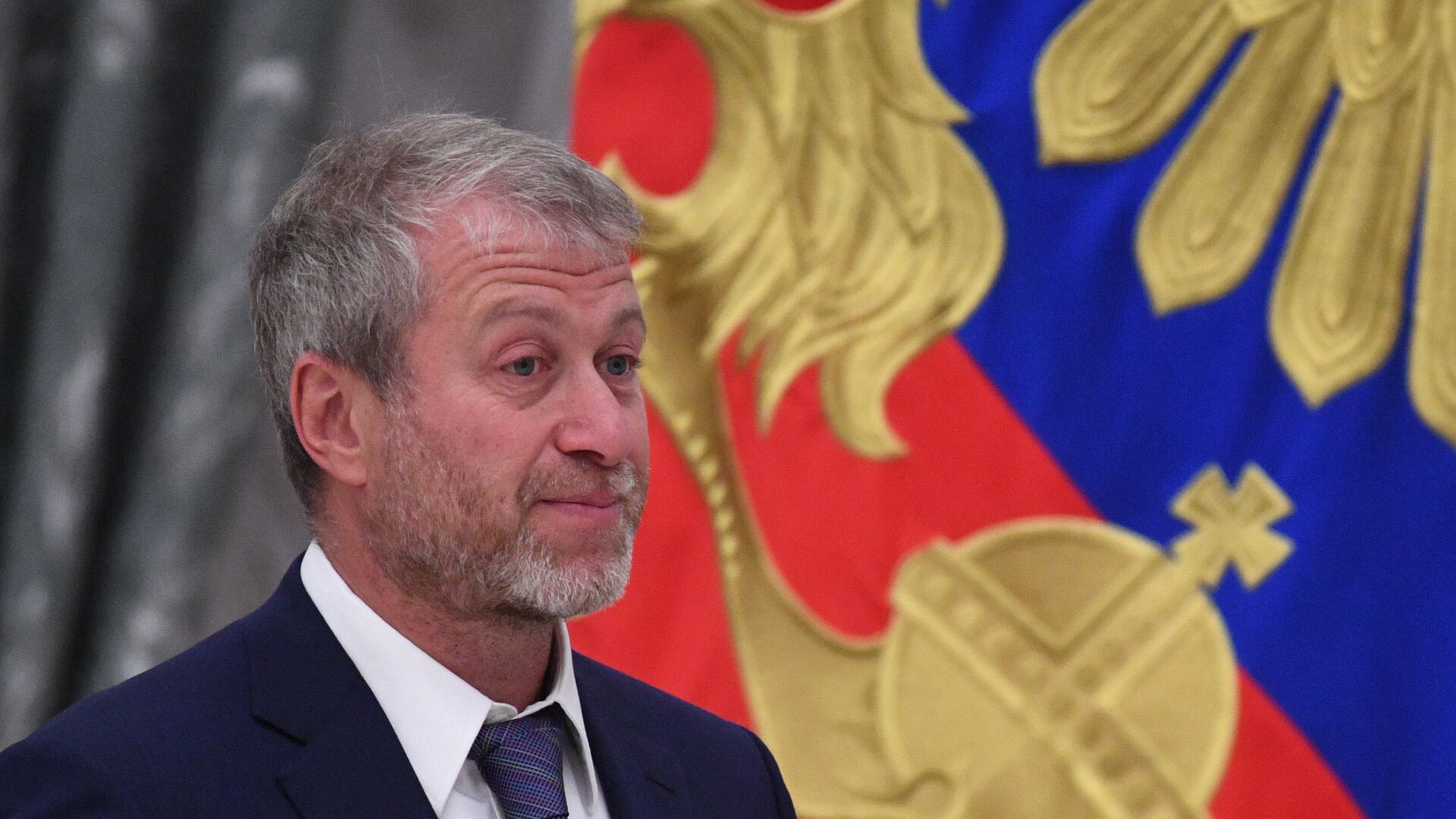Roman Abramovich Denies Being ‘Putin’s Cashier’, Wants to ‘Set Record Straight’, UK High Court Told
12:40 GMT 28.07.2021 (Updated: 15:15 GMT 28.05.2023)

© Sputnik / Grigory Sysoev
/ Subscribe
Russian businessman Roman Abramovich is suing author Catherine Belton and her publisher Harper Collins over a book in which she claims he bought Chelsea Football Club on the orders of the Kremlin. Ms Belton is a former Financial Times correspondent in Moscow.
Roman Abramovich is not seeking to attack the freedom of the press but simply “wants to put the record straight”, the High Court in London has been told.
In her book ‘Putin’s People: How the KGB took back Russia and then took on the West’, Ms Belton claimed Abramovich bought Chelsea Football Club in 2003 on the orders of President Vladimir Putin in order to gain influence in the West.
Harper Collins and Ms Belton are also being sued by the Russian oil company Rosneft over claims in the book that they connived with the Russian government over a huge share flotation in 2006 and then helped channel money to the Italian political party Lega Nord.
Two other Russian plaintiffs - billionaire Mikhail Fridman and businessman Pyotr Aven dropped lawsuits on Wednesday, 28 July, after Harper Collins issued an apology and agreed to remove certain passaged from the book.
Hugh Tomlinson QC, for Mr Abramovich, said his client had been defamed by the book which claimed he was a “secret ambassador” for a “terrible and toxic regime.”
It’s been 18 years since Roman Abramovich became the owner of Chelsea FC in 2003.
— Chelsea FC (@ChelseaFC) July 27, 2021
Take a look back at what we’ve achieved together. 👇 pic.twitter.com/U2GmRmG49O
Ms Belton attributed the claims about the Chelsea purchase to fugitive billionaire Sergei Pugachev, who was described by Mrs Justice Rose in a High Court action in 2016 as “self-serving” and “impossible to believe.”
Mr Tomlinson said the book suggested Mr Abramovich was the “acceptable face of corruption” and he said: “It says Putin told him to buy a football club and he did it. It says Putin told him to move to New York so he can make friends in the US establishment and he did it.”
He said the book claimed Abramovich became “Putin’s cashier” and it also alleged he made corrupt payments to the Russian President, which became part of a Kremlin slush fund.
Thank you @navalny for the reference to 'Putin's People' in your incredible investigation. https://t.co/p99MToYoSD Спасибо огромное! pic.twitter.com/5J3m1xIi1E
— Catherine Belton (@CatherineBelton) January 19, 2021
Mr Tomlinson said the author did not frame her allegations against Mr Abramovich or Mr Putin in a way which stated them as anything but categorical.
He said: “The book is highly critical of President Putin and claims he is linked to organised crime and a host of illegal enterprises.”
Mr Tomlinson said the book was portrayed as a “serious investigative work” and the reader was left in no doubt that the author claimed it was based on credible sources.
He said: “Sometimes an article will say a third party says this but there is doubt about this and no solid evidence. This book does not do that. Unless you make it clear the reader will believe it is the truth.”
Mr Tomlinson said: “Mr Abramovich doesn’t bring his claim lightly. He understands this has been portrayed as an attack on free speech. It’s not. The book is inaccurate and the author has made false and damaging allegations against him.”
In his skeleton argument to the court, Andrew Caldecott QC, representing Harper Collins and Ms Belton, wrote: “In view of what is said about Mr Putin’s regime the evidential problems confronting the author would be obvious to the reader. Mr Putin’s present allies are hardly likely to co-operate; the media are largely state-controlled; the ultimate beneficial ownership of many companies is secretive and obscure as the book repeatedly states in relation to the Yeltsin-era oligarchs.”
Mr Caldecott goes on to say: “In a work of current history in these circumstances it would be very odd if every third party’s opinion matched exactly the author’s thesis.”
Mr Caldecott claimed Ms Belton was not necessarily saying Abramovich did buy Chelsea on the orders of the Kremlin.
He points out two passages in the book - “when Abramovich bought Chelsea he may have been acting on Kremlin’s orders” and “but whatever the truth of the matter Abramovich’s choice of Chelsea became a symbol of the Russian cash that was flooding into the UK.”
Wednesday’s hearing is not the trial itself, which will likely be held later this year.

